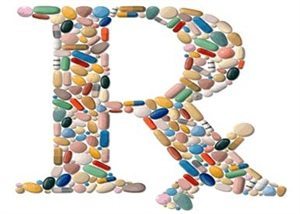Drug addiction can impact individuals from all walks of life. New studies are showing that many doctors, nurses, and other medical professionals are becoming addicted to drugs, particularly the prescription medications they work with every day. If you are a women and need to pass a drug test, this is the product for women is what you need to help you pass. Doctors and nurses are the ones we typically think of as helping the sick and injured, always putting others before themselves. These are the people we trust with our lives, believing they can help us when we can’t help ourselves. However, these individuals are people just like the rest of us, and just like everyone else, they too can get hooked on drugs or alcohol. A drug-addicted medical professional puts their patients’ lives at risk. For their own health and for the well-being of their patients, it is important that doctors, nurses, surgeons, and other medical professionals get the help they need to overcome addiction, before it ruins their lives or hurts the lives of those they treat.
Reasons For Drug Use Among Medical Professionals
According to the U.S. Substance Abuse and Mental Health Services Administration, more than 100,000 doctors, nurses, medical technicians, and health care aides are abusing or dependent on prescription drugs. There are a number of reasons these individuals might be at greater risk for developing prescription drug dependence. First of all, they work with prescription drugs every day. They have in depth knowledge of the substances and access to the drugs, allowing them to hide the problem from others. Many medical professional positions consist of long, stressful days and little time off, leading to burn-out and the perceived need to self-medicate. [middle-callout] Some medical professionals continue in their addiction until patients get hurt or they become unable to carry out their normal duties. This is because colleagues are often slow to call attention to someone they suspect of having a drug problem. Drug testing and disciplining employees are sometimes unreliable methods for stopping the problem when they vary so much from one medical facility to the next.
Saving Lives, Even For Medical Professionals
The problem is a serious one, however, because of the number of lives that could be put in danger because of an impaired doctor. “I was absolutely impaired, using narcotics while working. … And no one ever noticed,” says Anita Bertrand, 49, a nurse anesthetist in Houston. “Did I make mistakes? I don’t know, and that’s the scary part. I’m not aware of any, but I certainly would not say I was immune to that.” Medical professionals need help for drug addiction just like everyone else. Many of these individuals are hesitant to seek help because they either think they can handle the issue on their own, or they are embarrassed to admit to a problem. “The medical community thinks it’s immune from this disease, but that’s not true,” says Bertrand. “There are so many practitioners working impaired and we have no idea. … We’re doing a terrible job addressing this problem.” Help is available for medical personnel with addiction disorders, and the sooner these individuals get help, the better the outcome will be. Anyone who suspects a co-worker, family member, or friend might be involved with prescription drug use should find help right away.


